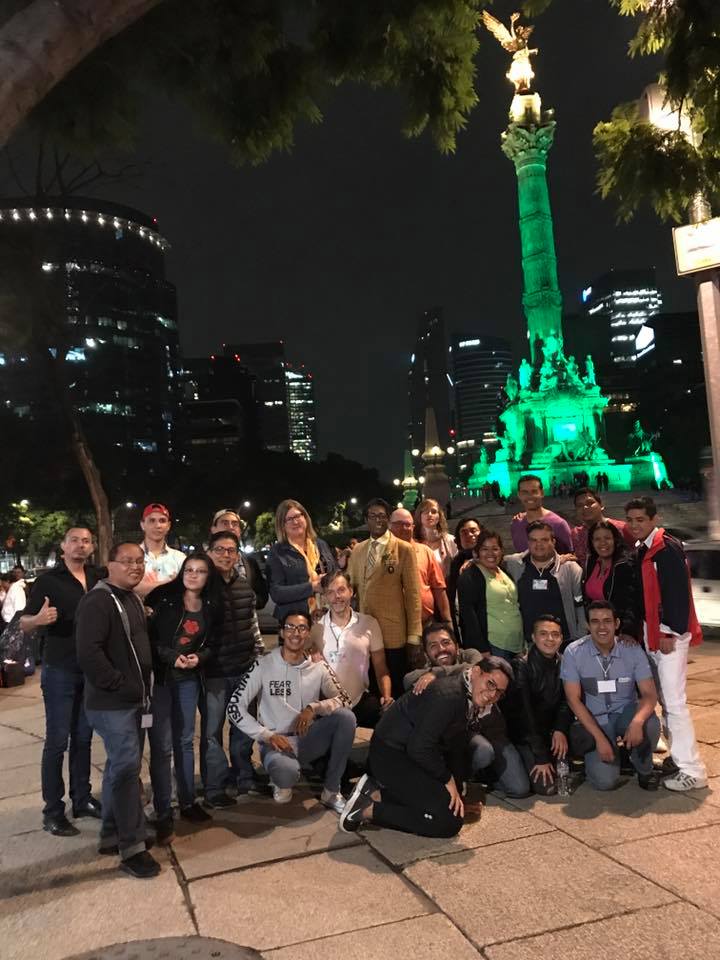Mexico leadership has long been a focal point for both national and international observers as the country navigates its complex socio-political landscape. From historical roots to modern challenges, the leadership of Mexico continues to shape its trajectory on the global stage. In this article, we delve into the critical aspects of Mexican governance, exploring the qualities, strategies, and challenges faced by its leaders. As Mexico continues to evolve, understanding its leadership dynamics becomes essential for grasping the nation's future prospects.
The essence of leadership in Mexico extends beyond governance; it reflects the cultural, economic, and social fabric of the nation. Over the years, Mexico leadership has played a pivotal role in shaping policies that impact millions of lives. From addressing economic disparities to fostering innovation, the country’s leadership faces multifaceted challenges that demand innovative solutions. This article aims to provide an in-depth analysis of the leadership qualities that define modern Mexico, highlighting the strengths and weaknesses that influence national progress.
As we explore the intricacies of Mexico leadership, it is important to recognize the evolving nature of governance in the country. The leadership style has transformed significantly, reflecting the changing needs and aspirations of its citizens. Through this article, we aim to shed light on the critical aspects of leadership that contribute to Mexico's growth, resilience, and global standing. By examining both historical and contemporary contexts, readers will gain a comprehensive understanding of what it means to lead in Mexico today.
Read also:Unveiling The Magic A Deep Dive Into Journey Songs And Lyrics
What Qualities Define Successful Mexico Leadership?
Leadership in Mexico requires a unique blend of qualities that address the diverse needs of its population. Successful leaders must possess vision, resilience, and adaptability to navigate the complex socio-political environment. Moreover, they must demonstrate a commitment to transparency and accountability, ensuring that policies align with the aspirations of their citizens. In this section, we explore the key attributes that define effective Mexico leadership:
- Strong Vision: Leaders must articulate a clear and compelling vision for the future.
- Adaptability: The ability to adapt to changing circumstances is crucial for long-term success.
- Empathy: Understanding the needs of diverse communities fosters trust and cooperation.
How Has Mexico Leadership Evolved Over Time?
The evolution of Mexico leadership reflects the nation's journey through various historical phases. From colonial times to the modern era, the leadership style has undergone significant transformations. Early leaders focused on establishing a national identity, while contemporary leaders prioritize economic growth and social equity. This subheading examines the key milestones in the development of Mexico leadership, highlighting the challenges and achievements that have shaped the nation:
Mexico leadership has consistently adapted to new challenges, ensuring the nation remains competitive on the global stage. By learning from past experiences, leaders have developed strategies that address both immediate and long-term needs. This adaptability has been crucial in navigating the complexities of modern governance.
Can Mexico Leadership Address Economic Disparities?
Economic disparities remain one of the most pressing issues facing Mexico leadership today. Addressing these disparities requires a multifaceted approach that combines policy reform with community engagement. In this section, we analyze the strategies employed by current leaders to bridge the economic gap and promote inclusive growth:
- Policies aimed at reducing poverty and unemployment.
- Investment in education and skill development.
- Encouraging entrepreneurship and innovation.
What Role Does Cultural Identity Play in Mexico Leadership?
Cultural identity plays a vital role in shaping Mexico leadership. Leaders who understand and respect the rich cultural heritage of the nation are better equipped to connect with their constituents. This subheading explores the intersection of culture and leadership, highlighting examples of leaders who have successfully integrated cultural values into their governance:
By embracing cultural identity, Mexico leadership fosters a sense of unity and belonging among its citizens. This approach not only strengthens social cohesion but also enhances the nation's global image. Leaders who prioritize cultural preservation and promotion contribute to the long-term sustainability of Mexico's unique identity.
Read also:Sylvester Stallone Shows A Comprehensive Look At The Icons Television Legacy
Biography: A Leader's Journey in Mexico Leadership
Understanding the personal background of key leaders provides valuable insights into their leadership style and decision-making processes. Below is a detailed biography of a prominent figure in Mexico leadership:
| Full Name | Juan Carlos Hernández |
|---|---|
| Birth Date | March 12, 1965 |
| Place of Birth | Mexico City, Mexico |
| Education | Bachelor's in Political Science, Universidad Nacional Autónoma de México |
| Political Affiliation | Partido Revolucionario Institucional (PRI) |
Is Mexico Leadership Prepared for Future Challenges?
The future of Mexico leadership hinges on its ability to anticipate and address emerging challenges. From climate change to technological advancements, leaders must be proactive in developing strategies that ensure long-term sustainability. This section evaluates the preparedness of current leaders to tackle future challenges, emphasizing the importance of foresight and innovation:
By investing in research and development, Mexico leadership can position the nation as a leader in sustainable practices. Additionally, fostering partnerships with international organizations will enhance the country's capacity to address global challenges effectively.
How Does Mexico Leadership Foster Innovation?
Innovation is a cornerstone of modern governance, and Mexico leadership has recognized its importance in driving economic growth. This subheading examines the initiatives undertaken by leaders to promote innovation across various sectors:
- Establishing innovation hubs and research centers.
- Providing incentives for startups and entrepreneurs.
- Collaborating with global partners to exchange knowledge and expertise.
Table of Contents
- What Qualities Define Successful Mexico Leadership?
- How Has Mexico Leadership Evolved Over Time?
- Can Mexico Leadership Address Economic Disparities?
- What Role Does Cultural Identity Play in Mexico Leadership?
- Biography: A Leader's Journey in Mexico Leadership
- Is Mexico Leadership Prepared for Future Challenges?
- How Does Mexico Leadership Foster Innovation?
- What Are the Challenges Facing Modern Mexico Leadership?
- How Can Mexico Leadership Enhance Social Equity?
- Why Is Transparency Important in Mexico Leadership?
What Are the Challenges Facing Modern Mexico Leadership?
Modern Mexico leadership faces a myriad of challenges that demand innovative solutions. From addressing corruption to promoting environmental sustainability, leaders must navigate a complex landscape to ensure progress. This subheading explores the key challenges confronting Mexico leadership today:
By prioritizing transparency and accountability, leaders can rebuild trust and foster a culture of integrity. Additionally, investing in education and healthcare will enhance the quality of life for millions of Mexicans, contributing to long-term stability and prosperity.
How Can Mexico Leadership Enhance Social Equity?
Social equity remains a critical focus for Mexico leadership, as it seeks to address the needs of marginalized communities. This section outlines the strategies employed by leaders to promote equality and inclusivity:
- Implementing policies that support gender equality and minority rights.
- Expanding access to healthcare and education for underserved populations.
- Promoting community-based initiatives to empower local leaders.
Why Is Transparency Important in Mexico Leadership?
Transparency is essential for building trust and ensuring accountability in Mexico leadership. Leaders who prioritize transparency foster a culture of openness and integrity, enhancing their credibility with citizens. This subheading examines the role of transparency in modern governance:
By adopting transparent practices, Mexico leadership can address issues of corruption and mismanagement, promoting a more equitable and just society. Additionally, transparency enhances the effectiveness of policies, ensuring they align with the needs and aspirations of the population.
In conclusion, Mexico leadership continues to evolve, reflecting the changing needs and aspirations of its citizens. By embracing innovation, fostering inclusivity, and prioritizing transparency, leaders can drive the nation toward a brighter future. As Mexico continues to navigate the complexities of modern governance, the qualities and strategies of its leaders will play a crucial role in shaping its destiny.


